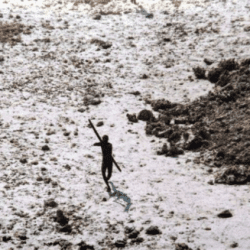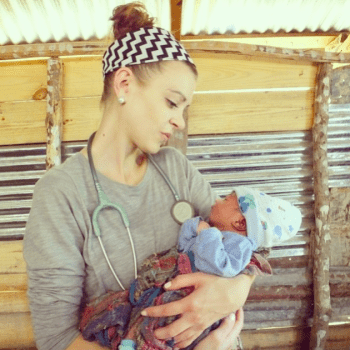
I imagined it at least a hundred times.
When I was sick with malaria, when I was exhausted after a 28 hour shift, when the hospital ran out of water, when I lost a patient I’d tried so hard to save, I closed my eyes and imagined coming home.
Stepping on the plane in Togo, falling asleep with headphones and a blanket, waking up on U.S. soil, hugging family for the first time in four months.
In spite of how unlikely it seemed at times, the day finally arrived. A van ride to the airport. Check-in at the airport in Lome. Two airline agents and a security guard asking the same question: Are you coming back to Togo?
I don’t know, I said.
Please come back, they all said. Please come back.
A seven hour red-eye flight to Brussels.
I had a three-hour layover. I paid $25 to get into the United Club, a quiet, beautiful space with drinks and snacks, showers, overstuffed arm chairs and fast wi-fi on the second floor of the airport.
I wasn’t quite home yet, but I was already running out of steam. I was too fragile to handle crowds, jostling, long lines and loud noises so I escaped to the Club and spent there hours at a small table by the window sipping a cappuccino and sparkling water. I tried to tempt myself with each of the foods offered, like a mom trying to get a sick child to eat.
How about a muffin? No? Well, what if we gave you a few bites of a ham and cheese sandwich? No? Okay well, what if you tried an apple. Just try it.
I did. I tried a few bites of an apple and my stomach said No, thank you.
It was 2 a.m. in the U.S. I thought about texting my family to tell them I’d made it to Brussels. Then I decided not to, because that’s obnoxious. And then I decided, what the heck, and I texted them all anyway. Maybe that’s the cost of having a jet-setting sister in the family.

I boarded my flight to Chicago. I ate a few crackers and then fell asleep. And I slept for most of the 9 hour flight home.
We landed.
Ladies and gentlemen, we’d like to be the first to welcome you to Chicago, where the local time is 1 p.m., the flight attendant said in English. Then Dutch. Then French.
I went through customs.
Did you bring any alcohol, tobacco, illegal substances or produce back with you from Africa?
Nope.
The customs agent is holding my passport. I’ve been to eight or 9 countries this year. I’ve stood before lots of immigration agents. I’ve been asked a lot of questions. I’m expecting the usual barrage of questions, someone trying to read my microexpressions as they attempt to trap me into lying.
“What were you doing in Africa?” the customs agent asks me.
“I worked at a hospital there,” I answer wearily. In those words, in those six words, a lifetime of stories and indelible memories.
“Good work,” the customs agent says as he stamps my passport and slides it under the glass partition towards me. “Welcome home,” he says.
I nod, silently.
I’m already crying.
Before I see my parents, before it’s sunk in that I’m finally in the U.S., I’ve heard the two words I’ve been waiting for four months and ten thousand miles to hear.
Welcome home.
I dodge crowds of people as I make my way to the International Arrivals waiting area. My parents are there. My mom is holding an iced mocha from Starbucks with whipped cream on the top. My dad is holding a hot caramel macchiato. They couldn’t decide which one to get me, so they bought both.
I melt into my mom’s arms and we both cry. Dad gives me a hug and says, “Welcome home, sunshine,” and takes my suitcase.
We walk to the minivan in the parking garage. I climb in the back, fasten my seatbelt, and before we’ve left the airport, I’m asleep. I sleep for most of the 2 hour drive home.
There’s a pot roast in the crockpot and the kitchen smells like homemade bread. There are soft, cool, white sheets on my bed. There’s a foot-high stack of unopened mail for me to sift through. When I’m ready to re-engage with the world that somehow continued to turn the whole time I was away.
Mom’s in the kitchen making gravy from the pot roast drippings. Dad’s setting the table. My older brother comes home with a bouquet of roses for me. He’s six foot tall, and I get lost in his hug.

I go into the bathroom to wash my hands before dinner and I see the bathroom scale in the corner. I’m curious, so I step on it. With all my clothes on, I weight 92 pounds.
Coming home feels like the beginning of an uphill climb. I went to Africa to help heal patients, and now I’m the one who needs to heal.
I have work to do. Emotional processing. Spiritual reconciling. Physical rebuilding.
Tomorrow I meet my editor in Chicago to talk about my next book. Two days after that, I fly to Los Angeles to start my fall speaking tour.
But for one night, I try to forget about all of that. I eat dinner with my family. My mom’s pot roast melts in my mouth. After dinner, my parents and my brother and I play Tetris on the Wii until the batteries in the hand-held controls die. We watch an episode of a TV show that debuted while I was away.
And then I put on my pajamas and climb into bed.
I think about John 14:2, In my Father’s house are many mansions. It’s a familiar passage that I came to love when I was growing up — I heard my dad read it at every funeral he performed in his 3 decades as a pastor, and it is still comforting to me.
Time started in the Garden of Eden, but after the Fall, God gave us homes to dwell in as a shelter, as a mercy to remind us that we will not always be cast out of Paradise, that we will not always be lost and alone. That we will not always feel far away.
Time may have begun in a garden, but, like my Africa experience, time ends in a house where we are reunited with our Family, in the love and grace of our Father who’s been waiting to welcome us home.
As I turn out the light on the night stand next to my bed, the words echo in my head.
In my Father’s house are many mansions.
I close my eyes, and drift off to sleep.
In my Father’s house are many mansions.
If it were not so,
I would have told you.











